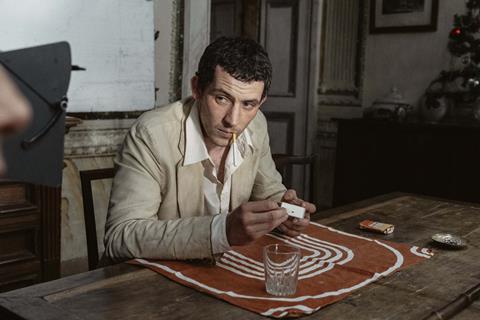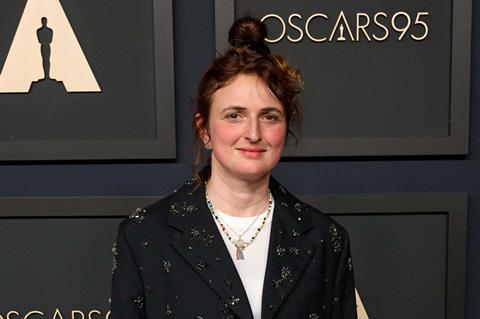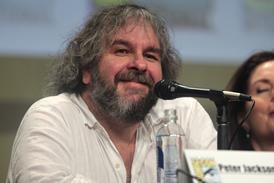Italian filmmaker Alice Rohrwacher explains why she reimagined the script of her Competition title La Chimera for UK actor Josh O’Connor.

Alice Rohrwacher is a familiar presence in Cannes. Her debut Heavenly Body (Corpo Celeste) premiered in Directors’ Fortnight in 2011, her second film The Wonders won the grand prix in 2014, and Happy As Lazzaro won best screenplay in 2018. She co-directed the 2021 documentary Futura, which played in Directors’ Fortnight, while her short The Pupils was in Rendez-Vous Avec last year.
La Chimera, which stars UK actor Josh O’Connor alongside Rohrwacher’s sister Alba, Carol Duarte and Isabella Rossellini, was filmed in north Lazio and the director’s native Tuscany in autumn last year. Set in the 1980s, the film explores the connections between the present and the past in a story about an archaeologist who becomes caught up in the clandestine black market world of Etruscan tomb robbers.

Produced by Rohrwacher’s regular producer Carlo Cresto-Dina, the Italy-Switzerland-France film is a Tempesta production with Rai Cinema in co-production with Ad Vitam Production, Amka Films Productions, Arte France Cinéma and RSI — Radiotelevisione Svizzera, and backed by the Italian and Swiss culture ministries, CNC, Neon, Arte France Cinéma, Canal+, TRT — Sinema and Ciné+. The Match Factory is handling sales; Neon has North American rights, while 01 Distribution will distribute in Italy and Ad Vitam in France.
What inspired you to make this film?
I’ve been listening all my life to these fascinating stories about the ‘tombarol’, or tomb raiders, in Tuscany who roam the countryside at night, stealing artefacts from buried Etruscan tombs to sell on the black market. The decision to turn them into a film came during the pandemic, when we were forced to confront death, and I began to reflect on how different cultures engage with death. I wasn’t so much interested in the fact these men were doing something illegal, but rather that they were committing acts against what is considered sacred. I always wondered where the robbers got their courage from, and I thought they wanted in a way to disassociate themselves from the past by robbing it, to say, “I’m different and these things are not sacred to me.”
How did you attach your cast?
The cast is a mixture of professional and amateur actors, like all my films. For the main role of Arthur, I was initially looking for an older actor, but was having no luck. Around that time, Josh O’Connor wrote to me because he had seen and liked Happy As Lazzaro. When we met, I saw the nostalgia, the gentleness, the longing in him, which was just what the character needed. Arthur is angry and violent but he is also very gentle, so I rewrote the character for Josh. He gave so much during the shoot; he gave so much encouragement to, and had so much patience with, the actors playing the tombaroli who had never performed before.
My sister Alba has a cameo with a very different character to the other roles she has played in my films. I had wanted to work with Isabella Rossellini for years because I admire her as an actor and as a woman, and because of her family background — her parents [Roberto Rossellini and Ingrid Bergman] are two icons of cinema. Carol Duarte was cast just a few days before filming began. I was watching Invisible Life with the cinematographer because we were researching lenses and I thought, “Yes, Carol!”
You’ve been to Cannes many times now. Do you have a favourite memory of the festival?
Every time I go to Cannes it’s like the first time for me. It’s a festival I love very much for its great role in protecting cinema. One lovely memory is walking home very late one night along an almost deserted Croisette. My heels were killing me — I only wear heels once every five years — so I took them off and then bumped into Agnes Varda. That barefoot walk along the Croisette with Agnes, which kicked off a great friendship, is a very cherished memory.
Do you have a favourite Palme d’Or winner?
Ermanno Olmi’s The Tree Of Wooden Clogs. I remember seeing the film on video as a child and being awestruck by the logo before the opening credits: “Palme d’Or for best film, Cannes Film Festival 1978.”

























No comments yet